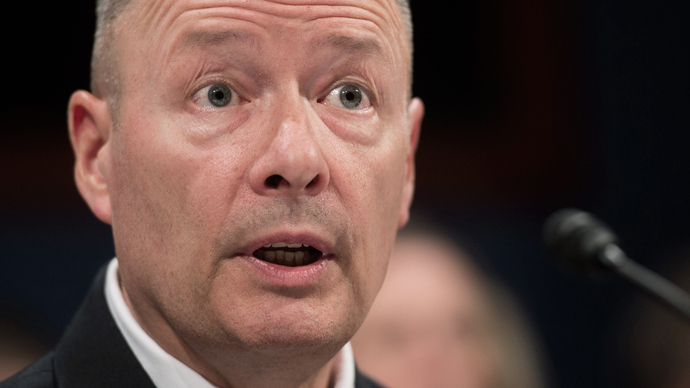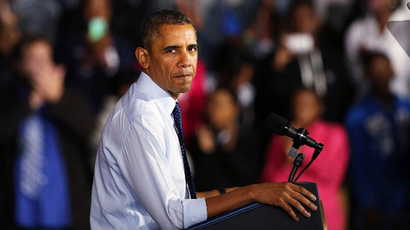NSA chief calls reports about spying in France, Spain and Italy 'completely false'

National Security Agency Director Gen. Keith Alexander told the United States Congress that recent media reports detailing the NSA’s surveillance of foreign citizens are “completely false.”
Gen. Alexander was speaking before lawmakers in Washington on Tuesday afternoon when he was asked if recent reports put together using leaked national security documents disclosed by former intelligence contractor Edward Snowden were accurate.
Alexander responded that assertions by reporters in France, Spain and Italy “that the NSA collected tens of millions of phone calls are completely false.”
The NSA chief said reporters cite screen shots leaked to the media that show a “Web tool used for data management purposes,” and said “both they and the person who stole the classified data do not understand what they were looking at.”
The data collected by the NSA, added Alexander, was legally obtained and provided to the NSA by foreign partners.
“To be perfectly clear, this is not information that we
collected on European citizens,” said Alexander. “It
represents information that we and our NATO allies have collected
in defense of our countries and in support of military
operations.”
Alexander and his colleagues didn’t deny allegations that international leaders were targeted through surveillance operations, however, and some went as far as to call those programs key components of intelligence-gathering processes.
Earlier in the week, the Wall Street Journal reported that European spy agencies collected phone records in war zones and areas outside their borders that were then shared with the NSA as part of wider efforts to protect allied soldiers and civilians.

James Clapper, the US director of national intelligence, told the House of Representative panel that spying on foreign leaders “is one of the first things I learned” when he entered his field 50 years ago.
Clapper called this type of spying “kind of a basic tenant” of intelligence-gathering, and said there were “absolutely” instances in which America’s allies have committed espionage against the US.
The intelligence community leaders continued to fight off allegations that Americans were targeted through the NSA’s programs as well, and Alexander went as far as to say employees within his agency have “taken an oath to defend the nation and protect our civil liberties and privacy, and they do that better than anyone I’ve ever seen.”
With regards to Snowden, however, Alexander had much harsher words for the NSA contractor-turned-leaker. During an exchange with Rep. Michele Bachmann (R-Minnesota) during the House Intelligence Committee hearing Tuesday afternoon, Gen. Alexander was asked a number of rapid-fire questions about the revelations made possible through the documents disclosed to the media by Mr. Snowden during the last several months and the implications they’ve had on the US.
Asked if the NSA spies on Americans, Alexander responded, “No, congressman, not without or a warrant or under a warrant program or FISA program,” referring to the Foreign Intelligence Surveillance Act which allows for authorities to investigate certain persons through the authorization of a secret court.
When asked about non-US persons, Alexander admitted that the NSA isn’t as careful. “And does the NSA listen to foreign if there is an intelligence-based interest?” Bachmann asked, to which Alexander answered, “Yes.”
“And do foreigners have the rights of an American citizen?” Bachmann queried him.
“No, they don’t,” responded the NSA chief.
Bachmann then asked if Mr. Snowden violated his constitutional oath by revealing to the detriment of US national security classified documents, which Alexander said “He did.” He also answered in the affirmative when asked if those actions were illegal and unconstitutional, and agreed with Bachmann that leaking intelligence “put at risk America’s national security interest.”
“Did Mr. Snowden’s illegal, unconstitutional revelations help the terrorists who seek to kill Americans?” asked Bachmann.
“I believe they will,” answered Alexander. “I would say they have and they will.”














